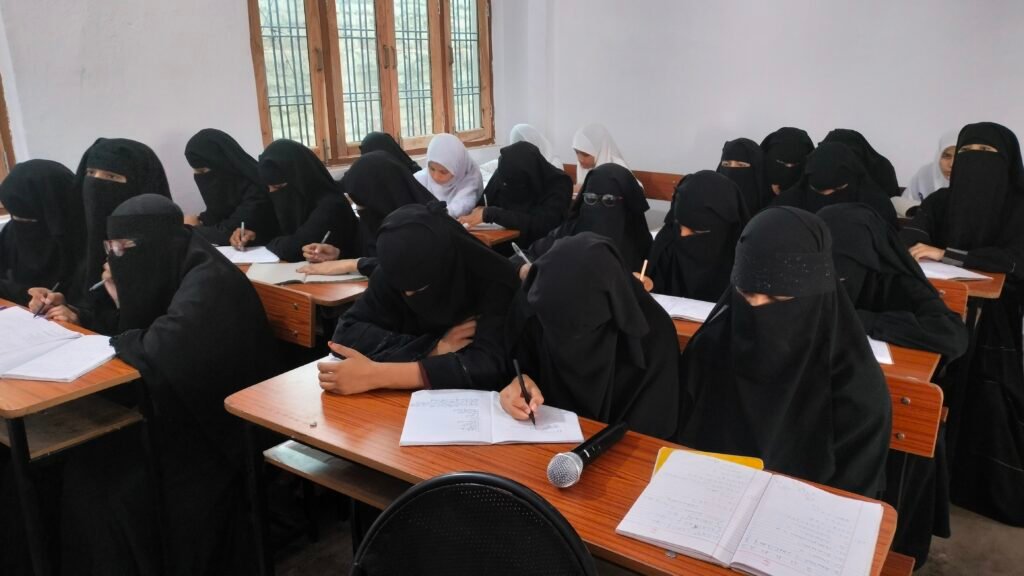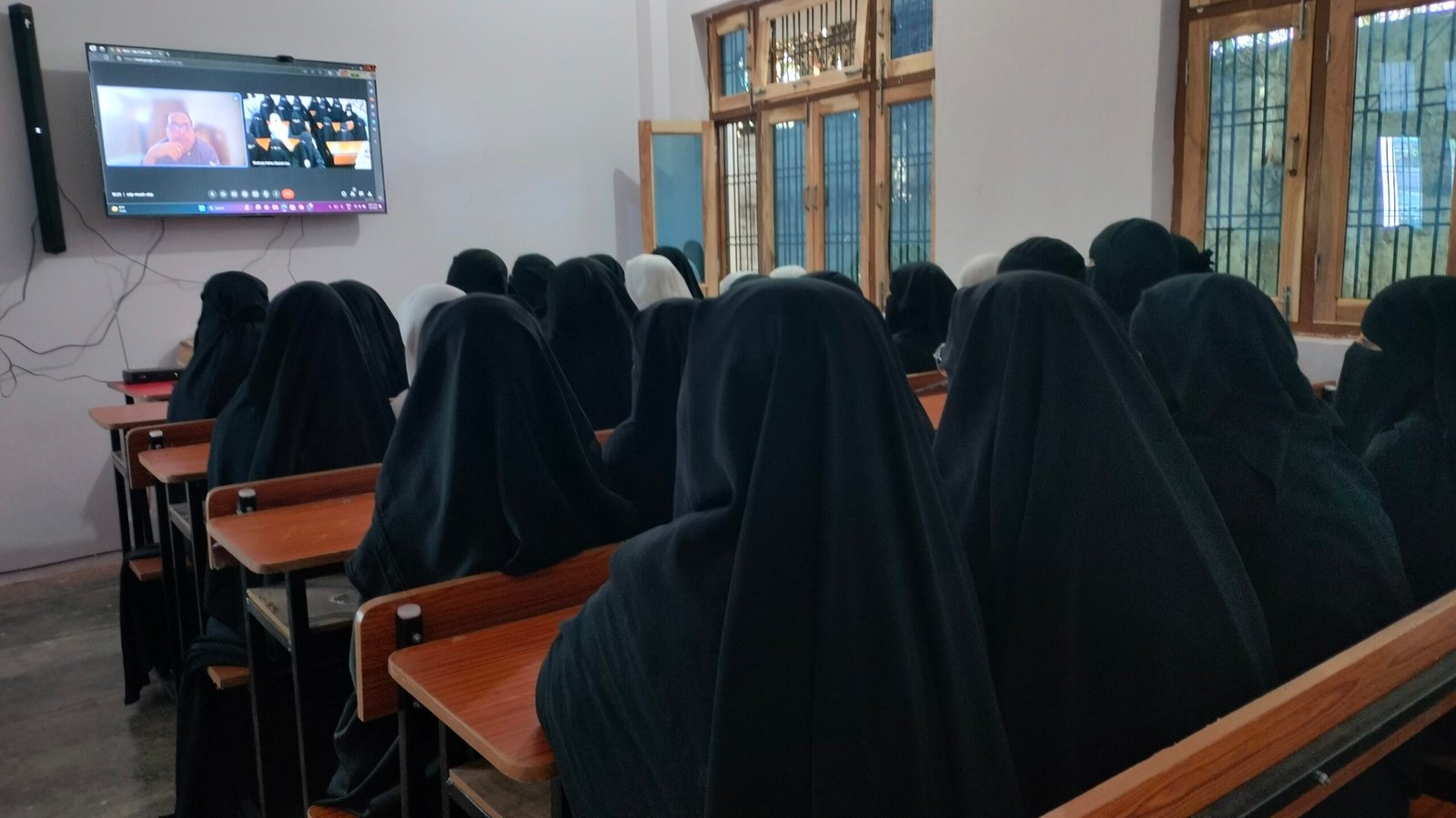Introduction

Madrasas have been a cornerstone of Islamic education for centuries, playing a vital role in preserving and spreading the authentic teachings of Islam. In an era where misinformation about religion is rampant, madrasas serve as institutions that uphold the correct understanding of Islamic principles. By providing structured religious education, they ensure that students learn the Quran, Hadith, Fiqh (Islamic jurisprudence), and other Islamic sciences in an authentic manner.
In this blog, we will explore the importance of madrasas in promoting the right Islamic teachings, their historical significance, and their role in modern society.
The Historical Significance of Madrasas
Madrasas have a rich history that dates back to the early days of Islam. They were established to educate individuals in religious sciences and produce scholars who could guide society. Some of the earliest and most renowned madrasas, such as Al-Qarawiyyin in Morocco (founded in 859 CE) and Al-Azhar University in Egypt (founded in 970 CE), continue to play a crucial role in Islamic education.
These institutions preserved Islamic knowledge during times of uncertainty and helped spread the teachings of Islam across different regions. The structured curriculum of madrasas ensured that students received a comprehensive education, allowing them to become scholars, judges, and religious leaders.
Why Madrasas Are Essential for Spreading the Right Islamic Teachings
1. Authentic Religious Knowledge
One of the primary purposes of madrasas is to provide students with authentic religious knowledge. Many misconceptions about Islam arise from individuals interpreting religious texts without proper knowledge. Madrasas follow a structured curriculum that includes subjects such as Tafsir (interpretation of the Quran), Hadith (sayings of Prophet Muhammad ﷺ), and Fiqh, ensuring that students develop a deep and accurate understanding of Islam.
2. Preserving Islamic Values and Ethics
Madrasas instill moral values and ethics in students from a young age. Unlike conventional schools, they place a strong emphasis on character development based on Islamic teachings. Honesty, humility, patience, and compassion are integral parts of madrasa education, shaping students into responsible and ethical members of society.
3. Combating Misinformation and Extremism
In today’s digital age, misinformation about Islam spreads rapidly. Extremist ideologies and misinterpretations of Islamic teachings can mislead individuals, creating a distorted image of Islam. Madrasas counteract this by providing accurate religious knowledge based on the Quran and authentic Hadith. Well-educated scholars from madrasas can guide communities and refute false ideologies.
4. Producing Qualified Islamic Scholars
The world needs well-educated Islamic scholars who can address contemporary issues from an Islamic perspective. Madrasas produce scholars who have a thorough understanding of Islamic jurisprudence and can offer guidance on modern-day challenges. These scholars play an essential role in providing religious rulings (fatwas), leading prayers, and educating communities.
5. Providing Accessible Religious Education
Madrasas offer free or affordable religious education, making Islamic knowledge accessible to people from all backgrounds. This is particularly important in economically disadvantaged communities where access to quality education is limited. By providing Islamic education, madrasas ensure that financial constraints do not become a barrier to learning about Islam.
6. Strengthening Muslim Identity
In multicultural societies, young Muslims often struggle to maintain their religious identity. Exposure to diverse ideologies and lifestyles can sometimes lead to confusion. Madrasas help strengthen Muslim identity by providing students with a firm foundation in their faith, enabling them to practice Islam confidently in any environment.
7. Promoting Peace and Coexistence
A common misconception is that madrasas promote division and intolerance. However, authentic Islamic education teaches love, peace, and coexistence. Many madrasas incorporate teachings on interfaith dialogue, tolerance, and social harmony, helping students develop a balanced approach to religious and social interactions.
The Role of Madrasas in Modern Society
While traditional madrasas have been effective in preserving Islamic teachings, modern society presents new challenges that require adaptation. Many contemporary madrasas have integrated secular subjects such as mathematics, science, and language studies into their curriculum. This holistic approach equips students with both religious and worldly knowledge, enabling them to excel in various fields.
Furthermore, online madrasas and digital Islamic courses have gained popularity, making Islamic education more accessible to a global audience. This modern adaptation ensures that authentic Islamic teachings continue to reach new generations despite geographical barriers.
Addressing Common Misconceptions About Madrasas
Despite their significance, madrasas often face criticism and misconceptions. Some believe that they only focus on religious education without preparing students for the modern world. However, many madrasas today offer a balanced curriculum that includes both religious and contemporary subjects.
Another misconception is that madrasas promote extremism. In reality, authentic madrasas emphasize the importance of peace, tolerance, and coexistence. By spreading the right Islamic teachings, they play a key role in preventing radicalization and promoting a moderate understanding of Islam.
Conclusion
Madrasas are vital institutions that preserve and spread the true teachings of Islam. They provide authentic religious knowledge, combat misinformation, and produce well-educated scholars who can guide society. By integrating modern educational methods, madrasas continue to evolve while maintaining their core mission of Islamic education.
In a world where misconceptions about Islam are widespread, madrasas play a crucial role in ensuring that the correct teachings of Islam are upheld and transmitted to future generations. Supporting and strengthening madrasas will contribute to a more informed, ethical, and peaceful society.

